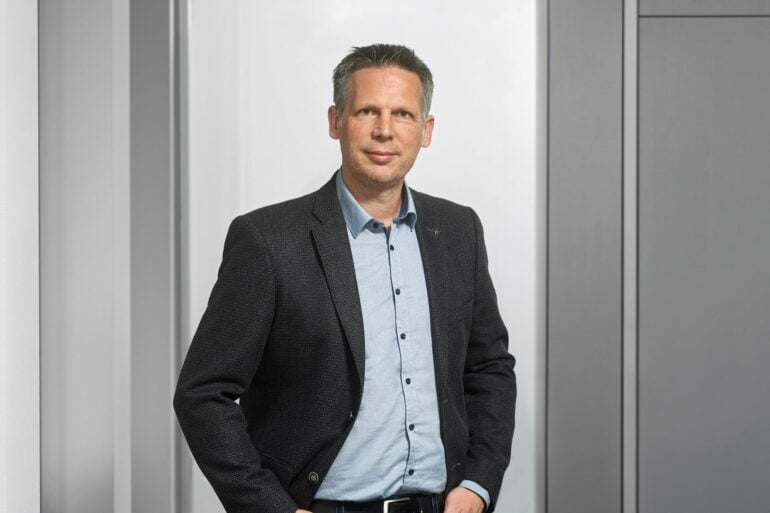Can artificial intelligence help stop climate change?

Low-emission mobility, climate-friendly energy supply, clean industrial production or optimized circular economy - artificial intelligence (AI) can contribute to climate protection in many ways.
At the same time, the development and deployment of AI systems is often itself accompanied by high resource consumption. Where the technology can best unleash its potential and what needs to be done to keep the ecological footprint of AI applications low is explained in an interview by Oliver Zielinski, head of the Competence Center AI for Environment and Sustainability at DFKI and member of the German platform “Lernende Systeme” (learning systems).

AI as a tool against climate change
Artificial intelligence can contribute to climate protection in many ways. In which areas do you see the greatest potential in the fight against climate change?
Oliver Zielinski: AI is a tool for generating knowledge, increasing efficiency and automating processes. In addition to mobility, energy supply, industry and the circular economy, the technology can unleash its great potential for climate- and environment-friendly innovations in building management and agriculture in particular.
These sectors have a higher degree of digitalization maturity. This "digital readiness" is important in order to quickly and effectively exploit the opportunities offered by AI, because artificial intelligence requires both a technological superstructure and a corresponding readiness on the part of those involved.
The crucial question is: How much efficiency can AI actually achieve in these areas? Experts assume 10 to 30 percent here, for example by improving processes, shortening routes and optimizing the use of raw materials.
One area where I see an opportunity for significant progress in the long term is the circular economy. Measured in terms of global material flows, the successes to date here have been rather modest, partly because the effort required for the continuous reuse of products and raw materials is not economically worthwhile.
AI can support these processes at all levels, provide targeted information about products, improve their reusability and automate labor-intensive processes - despite the high complexity of the tasks.
Green AI
The high-energy consumption of AI systems is much discussed. What does "green AI" look like?
Oliver Zielinski: We need more sustainability through AI and more sustainability in AI. The term "green AI" is based on the work on "Green AI" published by Roy Schwartz and co-authors in 2020 and the claim formulated there that green AI reduces its own ecological footprint and promotes inclusion.
Resource efficiency is the key concept, which means using as little material and energy as possible, throughout the lifecycle of AI methods. This also includes the open provision of annotated data and pre-trained or pre-optimized models to promote their high reusability and enable participation by actors with poorer access to knowledge and computing infrastructures.
With the increasing use of smart devices, AI models are also increasingly being operated directly at the users' sites. Due to the very high volume of such "AI-of-Things" (AIoT) systems, the individual energy and raw material requirements of each system, its useful life and reusability must now also be taken into account. Green AI thus goes beyond pure energy consumption and differs from the discussion about running large data centers on renewable energy.
The carbon footprint of artificial intelligence
What needs to be done to ensure that the ecological balance of AI deployment is positive on behalf of climate protection?
Oliver Zielinski: Some things are already being done, but that is not enough. Particularly in research funding, various German federal ministries have developed and published programs that lay the groundwork and translate it into exemplary applications. These projects are often referred to as lighthouses.
This is a start, but we need a whole sea of lights: Successful approaches must be brought into the mainstream. This requires social acceptance, a legal framework and investors. Broader acceptance can be achieved through participation and transparency, especially in the often emotional AI debate.
Legal frameworks and standards help to make environmental sustainability the standard, which in turn also provides a positive impetus for financing new business models and ventures. In the end, Green AI can thus become a seal of approval for climate-friendly AI technologies and at the same time an ecological competitive advantage for Europe.
AI News Without the Hype – Curated by Humans
As a THE DECODER subscriber, you get ad-free reading, our weekly AI newsletter, the exclusive "AI Radar" Frontier Report 6× per year, access to comments, and our complete archive.
Subscribe nowAI news without the hype
Curated by humans.
- Over 20 percent launch discount.
- Read without distractions – no Google ads.
- Access to comments and community discussions.
- Weekly AI newsletter.
- 6 times a year: “AI Radar” – deep dives on key AI topics.
- Up to 25 % off on KI Pro online events.
- Access to our full ten-year archive.
- Get the latest AI news from The Decoder.